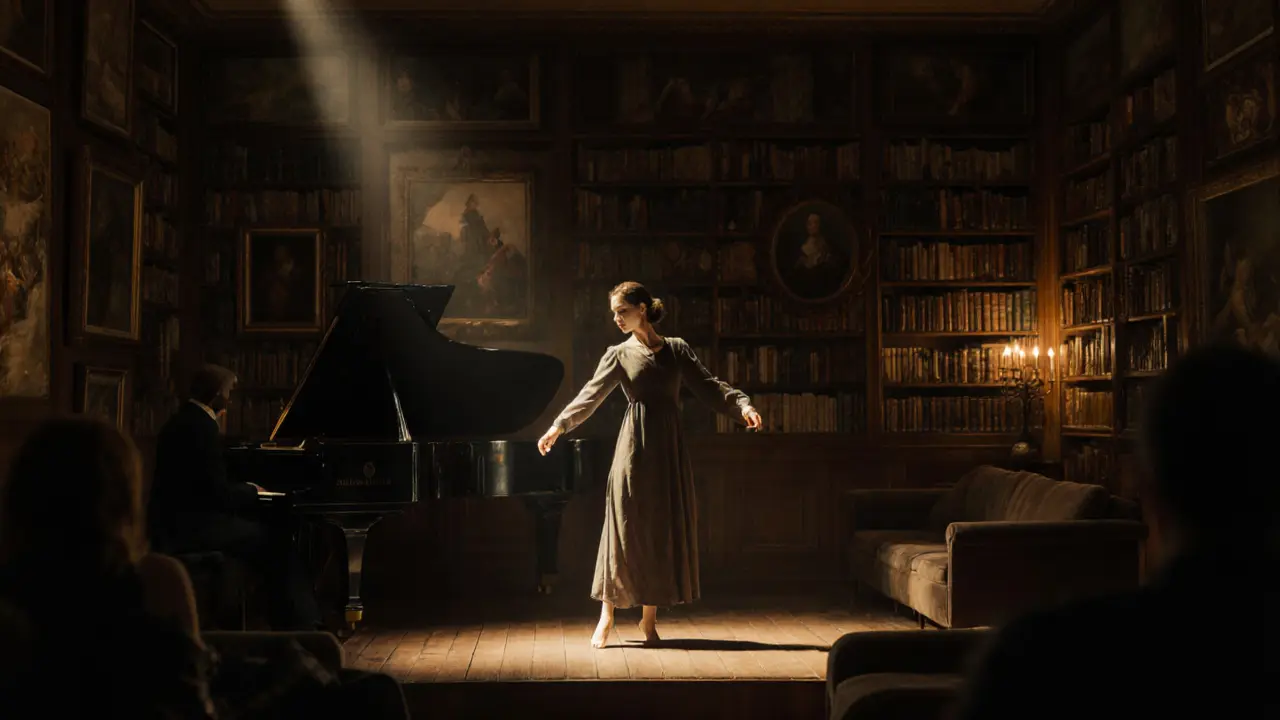The German Touch of Lilli Vanilli in Munich

- Maximilian Von Stauffenberg
- 7 November 2025
- 0 Comments
When you think of Munich, you might picture beer halls, lederhosen, or the Oktoberfest crowds. But beneath the surface of this traditional Bavarian city lies a quieter, more intimate scene-one shaped by performers like Lilli Vanilli, whose presence turned local nightlife into something unexpected and enduring.
Who Is Lilli Vanilli?
Lilli Vanilli isn’t just another name on a club flyer. She’s a German-born performer who rose to visibility in the early 2010s, not through viral clips or reality TV, but through a quiet consistency and a clear sense of identity. Born in Bavaria, she grew up in a small town near Augsburg, where she learned early that authenticity mattered more than spectacle. By the time she moved to Munich in 2012, she already had a strong idea of what she wanted her work to be: personal, respectful, and grounded in real connection.
Unlike many performers who chase trends, Lilli built her brand around mood, atmosphere, and emotional presence. Her shows didn’t rely on over-the-top costumes or loud music. Instead, she used soft lighting, live piano accompaniment, and slow, deliberate movements. She spoke to her audience-not at them. That approach caught on. Locals started calling her performances “the German touch”-a quiet intensity that felt more like a private concert than a strip act.
The Munich Scene in the 2010s
Munich’s adult entertainment scene in the 2010s was small but tightly knit. There were maybe a dozen venues that regularly hosted live performers, mostly tucked away in the Schwabing and Haidhausen districts. Most clubs leaned toward the flashy-neon lights, thumping bass, and performers who danced to pop hits. Lilli Vanilli stood out because she didn’t fit any of those molds.
She performed at Die Rosenkammer, a dimly lit lounge above a bookstore on Leopoldstraße. The venue had no sign outside. You had to know it was there. Inside, the walls were lined with vintage books and oil paintings. The stage was just a wooden platform, no barriers, no microphones. Guests sat on couches, sipped wine, and watched. No tipping. No photos. Just presence.
Her sets lasted 45 minutes. No choreography. No routines. She’d pick a song-a Nina Simone ballad, a Schubert lied-and move to it like she was remembering something private. People came back week after week. Not for the nudity. For the stillness. For the feeling that they were being let into something real.
The German Touch: A Cultural Shift
The term “German touch” wasn’t coined by marketers. It came from patrons. A retired professor from LMU wrote in a local arts blog in 2015: “She doesn’t perform for desire. She performs for attention. And that’s the rarest thing of all.”
This wasn’t just about aesthetics. It reflected a deeper cultural shift. Germany, especially in cities like Munich, has long had a complex relationship with sexuality-open in law, reserved in practice. Lilli Vanilli tapped into that tension. She didn’t rebel against German restraint. She refined it.
Her performances were never about objectification. They were about embodiment. She moved like someone who knew her body not as a tool for pleasure, but as a vessel for expression. That distinction made her popular among artists, writers, and even therapists who saw her shows as a form of non-verbal therapy.

Behind the Scenes
Offstage, Lilli Vanilli was quiet. She lived in a flat near the English Garden and spent her days reading philosophy and painting. She didn’t use social media. No Instagram. No Twitter. If you wanted to know when she was performing, you asked someone who’d been there before.
She never gave interviews. Not even to German magazines like Spiegel or Der Spiegel. When asked why, she once wrote in a handwritten note to a fan: “The performance is the message. Everything else is noise.”
She did, however, mentor a handful of younger performers. One of them, a dancer named Clara, later opened a small studio in Berlin called Still & True, which teaches movement-based expression for adults. Clara credits Lilli with showing her that “sensuality doesn’t need to scream to be heard.”
Why She Left
In 2020, Lilli Vanilli stopped performing. No announcement. No farewell show. One week she was there, the next she wasn’t. The owner of Die Rosenkammer said she simply handed him a key and said, “I’m done.”
Speculation ran wild. Some said she moved to Switzerland. Others claimed she was ill. A few even whispered she’d joined a monastery. The truth? She enrolled in a graduate program in art therapy at the University of Munich. She wanted to help people who’d been through trauma find their own stillness.
She still paints. She still reads. She still moves. But now, she does it in silence-with clients, not audiences.

Her Legacy in Munich
Today, Die Rosenkammer is gone. The building was converted into a vegan café. But if you walk past the corner of Leopoldstraße and Schellingstraße, you’ll still hear older locals talking about “the woman who danced like she was praying.”
There’s no plaque. No documentary. No Wikipedia page. But if you ask someone who was there, they’ll tell you the same thing: Lilli Vanilli didn’t change the adult entertainment industry in Munich. She changed how people felt about it. She proved that sensuality could be gentle. That intimacy didn’t need to be loud. That German restraint, when honored, could become a kind of grace.
Years later, a young filmmaker from Hamburg made a short film called Stillness in Munich. It had no dialogue. Just 12 minutes of shadows, music, and movement. At the end, the screen faded to black with one line: “For Lilli.”
What Remains
There are no videos of her performances online. No photos circulating. No merchandise. That was by design. She didn’t want to be remembered as a brand. She wanted to be remembered as a feeling.
And in Munich, that feeling still lingers. In the quiet of an afternoon in the English Garden. In the way someone pauses before ordering wine at a bar. In the silence between two people who’ve just shared something real.
Lilli Vanilli didn’t become famous. But she became unforgettable.
Who was Lilli Vanilli?
Lilli Vanilli was a German performer based in Munich who gained a quiet following in the 2010s for her intimate, emotionally grounded live shows. Unlike mainstream adult entertainers, she focused on stillness, atmosphere, and personal connection rather than spectacle. She performed at venues like Die Rosenkammer and became known for bringing a uniquely German sense of restraint and artistry to her work.
What made Lilli Vanilli different from other performers?
Lilli Vanilli stood out because she rejected the loud, flashy style common in adult entertainment. Her shows were quiet, slow, and deeply personal. She used live music, soft lighting, and minimal movement. She spoke to her audience as if they were friends, not customers. Her performances felt more like art installations than strip acts, and many attendees described them as therapeutic or meditative.
Did Lilli Vanilli have a social media presence?
No. Lilli Vanilli never used social media. She didn’t have Instagram, Twitter, or any public profiles. She believed the performance itself was the message, and anything beyond that was unnecessary noise. If you wanted to see her, you had to know where and when she was performing-usually through word of mouth.
Why did Lilli Vanilli stop performing?
In 2020, Lilli Vanilli quietly stopped performing and enrolled in a graduate program in art therapy at the University of Munich. She wanted to use her understanding of embodiment and emotional expression to help others heal from trauma. She never gave a public explanation, but those who knew her say she always saw her performances as a form of healing-not just for herself, but for those who watched.
Is there any footage or photos of Lilli Vanilli available?
No official footage, photos, or recordings of her performances exist publicly. She never allowed filming or photography during her shows, and she refused to sell any memorabilia. Her legacy lives only in the memories of those who experienced her work in person. A short film titled Stillness in Munich pays tribute to her, but it contains no actual footage of her.


